新加坡知识产权局局长邓鸿森获世界知识产权组织下一任总干事提名

#本文仅代表作者观点,不代表IPRdaily立场#
来源:IPRdaily中文网(iprdaily.cn)
原标题:刚刚!新加坡知识产权局局长邓鸿森获世界知识产权组织下一任总干事提名
IPRdaily消息:当地时间3月4点下午17时20分,在瑞士日内瓦世界知识产权总部召开的产权组织协调委员会特别会议上,现任新加坡知识产权局局长的邓鸿森被提名为下一任世界知识产权总干事。最终结果将在5月7至8日的产权组织大会上通过提名。

本次产权组织竞选中国提名现任副总干事,在世界知识产权组织任职近30年的王彬颖女士参选。她也一直被公认为能力最强,资历最深,最具竞争力的候选人之一。
然而从去年的备选系列活动开始,美国就开始不遗余力地阻挠中国候选人。
在正式选举的前夕,美国设法向一些国家施压,希望他们放弃支持中国候选人。甚至扬言“只要不是中国,谁都行。”很多国家都认为不应该把这样一次专业的竞选政治化。
中方也多次表示这是一次专业的选举,不该将其政治化。中国提名候选人参选总干事,是中国为推动合作和发展做贡献的积极意愿,中国愿意积极参与世界知识产权全球治理,与各国展开务实合作。
提名结束后,中国常驻联合国日内瓦办事处和瑞士其他国际组织代表陈旭在回答记者提问时表示,“恭喜提名人,中国会继续积极地参与世界知识产权全球治理。”(记者薛婧萌)
延伸阅读资料
IPRdaily独家专访「新加坡知识产权局局长—邓鸿森先生」
(中英双语)
采访时间:2017年6月14日
记者:IPRdaily国际部 李梦
受访人:新加坡知识产权局局长 邓鸿森
IPRdaily导读:“新加坡和中国在第 13 届双边合作联委会(JCBC )上再次重申了他们的承诺和强烈的合作精神,并且中国国家知识产权局(SIPO)、新加坡知识产权局(IPOS)和广东省政府在 2017 年 2 月签署了三边谅解备忘录。该备忘录将利用中新广州知识城(SSGKC)作为知识产权改革试验区,联系寻求国际发展的创新型中企业和新加坡公司,伴随一带一路的举措扩张和成长。”新加坡知识产权局局长邓鸿森先生在接受IPRdaily记者独家专访时这样介绍到。
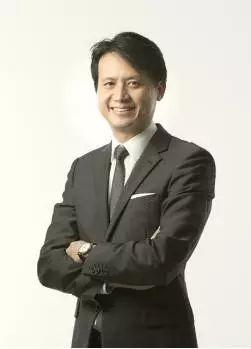
IPRdaily:邓先生您好!很感谢这次新加坡知识产权局对于IPRdaily的支持和信任,授予我们这个机会可以采访您。那么请您简要介绍下您自己,是什么让您走上知识产权的道路的呢?
Thank you for this opportunity to interview you! Before starting our interview, please tell us more about yourself and what makes you interested in intellectual property.
邓鸿森先生:在我任职知识产权局之前,我当过十多年的国际律师。我的专业领域是自由贸易协议,我曾代表新加坡与美国和欧盟谈判自由贸易协定以及各种东盟贸易和投资协议。这种工作错综复杂却又极具挑战性,并且令人兴奋、拓展了我的思维。我从中了解到不同国家和地区在面对相同问题时,会采取怎样不同的解决方式。因此,构建桥梁、交流思想、合作解决共同的挑战,这非常重要。
之后我来到知识产权局,是因为我想拓展自己的能力。律师这种职业富有技术性,但我想尝试涉足更为广泛的领域。因此,我加入了知识产权局,担任副局长的职务,这使我能参与政策制定,协助管理知识产权局。
我加入知识产权局后,知识产权领域有几个方面让我深受触动。首先,这是一个非常动态的环境,包括技术、品牌或内容在内的各种新想法层出不穷。其次,知识产权界人士趋于国际化,因为他们服务的对象是业务活动覆盖全球的公司或组织。第三,总体而言,知识产权界是一个让人快乐兴奋的社群,我认为,这是因为发明或创造、或参与推动知识产权的发展会让人获得极大的满足感。
同样,我个人与知识产权也有着联系。我之前是个业余音乐家,在爵士四重奏中弹奏钢琴。音乐并非我后来的职业,但它让我了解到创作者的感觉,这与我的工作有着情感上的联系。
Daren TANG: Before I was posted to the IP office, I was an international lawyer for more than a decade. My area of focus was on free trade agreements and I negotiated our FTAs with the US and the EU, as well as various ASEAN trade and investment agreements. The work was complex and challenging, but exciting and mind-broadening. I learned how different regions or countries faced common issues but had different approaches to them, so it was important to build bridges to allow for ideas to be exchanged and common challenges to be worked on together.
I moved from this world to the IP office because I was looking to broaden my capabilities. Lawyering is deeply technical and I wanted to try something which was broader in scope. I was therefore posted to the IP office as the Deputy Chief Executive, which would allow me to get involved in policy-making and to help run the office.
After I joined the office, I was struck by several things about the IP world. First, it is an extremely dynamic environment, where there is a constant injection of new ideas, be it technology, brands or content. Second, people in the IP community tend to be international, because they work for companies or organisations which have global operations or activities. Third, it is generally a happy and excited community, which I think comes from the fact that inventing or creating something, or being involved in promoting it, is a very satisfying path.
I also have a personal connection with IP because of my past experience as an amateur musician, playing piano in a jazz quartet. I did not pursue that as a career but it allowed me to understand what it is like to be a creator, and to have an emotional connection to my work.
IPRdaily:单在亚洲来说,新加坡的知识产权保护程度可以说非常高,也曾被称为全球最佳知识产权保护国家,那么近些年来新加坡知识产权局在 IP 方面的工作思路是什么样的?
Singapore is often ranked top in Asia for having the best IP protection. Can you share some of the work IPOS does to maintain this reputation?
邓鸿森先生:在新加坡,和在中国一样,我们将知识产权视为驱动经济社会发展的重要媒介。确保知识产权制度为创新公司提供支持,对我们人民的生活带来积极影响,这是我们的工作。
虽然利益相关者非常认可我们的知识产权制度,我们还是会对知识产权法进行定期回顾和更新,确保知识产权法与时俱进,符合现实。
要做好这一点并让它产生真实可靠的影响,利益相关者的参与至关重要。新加坡知识产权局不仅将自己视为知识产权登记处,而且是一个创新机构。因此,我们有着广泛的利益相关者,包括研发界、知识产权专业人士、企业、金融家、创造者和企业家。我们还与众多的国外利益相关者和合作伙伴建立了密切关系,以便更好地了解世界各地的发展。
还有一种可以分享的做法是,我们使用数据促进政策决定,其他知识产权局也在不断运用这种做法。这让我们能更好地评估項目的影响力,丰富决策流程。
随着这些措施的落实到位,过去两年中,我们非常积极地进行了立法改革。例如,新加坡国会最近通过了专利和注册外观设计法修正案,其中一个新修正提出扩大专利宽限期 【1】,这就是利益相关者参与的结果。通过这项新的修正案,发明者在申请专利之前就能披露其发明的相关信息,用于战略和商业目的(例如,联系投资人、评估市场需求)。我们对注册外观设计宽限期也做了类似修正。
目前,我们正在对版权制度进行三十年来的首次重大审查,以确保其与数字时代的市场变化、技术进步及其相应挑战保持同步。去年八月,我们首次启动了公开民意征询;并且上文提出的立法修订可能将在 2018 年生效。
除此之外,我们还在研究进行变革,以构建一个知识产权争议解决系统,通过构建一个更简明、性价比更高的机制来更好地为中小企业和企业家的需求服务。
因此,我们进行的各种变革将涉及到知识产权生命周期的各个部分,从创造到注册到维权。
Daren TANG: In Singapore, just like in China, we see IP as an important tool for economic and social development. It is our job to ensure that the IP regime supports innovative companies and has a positive impact on the lives of our people.
Although our IP regime is well regarded by stakeholders, we still conduct regular review and updates to ensure that our IP laws are progressive and relevant.
To do this well, and have a genuine impact, stakeholder engagement is crucial. IPOS sees itself not just as an IP registry but an innovation agency, so we have a wide range of stakeholders, including those in the R&D community, IP professionals, businesses, financiers, creators and entrepreneurs. We also engage extensively with foreign stakeholders and partners, to get a better read of developments around the world.
Another practice we can share is the use of data to drive policy-decisions, which is also increasingly the practice at other IP offices. This allows us to better gauge the impact of our proposals and enrich our decision-making processes.
With these in place, we have been extremely active in the area of legislative reform in the past two years. For example, the Singapore parliament recently passed amendments to our patent and registered designs laws where one of the new amendments, proposed as a result of our stakeholders’ engagements, was the broadening of our patent grace period 【1】 . This allows inventors to disclose information of their inventions for strategic and business purposes (e.g. attract investors, assess market demand) even before they file a patent. A similar amendment was also made for our registered designs grace period.
We are currently embarking on the first major review of our copyright regime in 30 years to ensure it remains relevant in light of market changes, technological advances in the digital age and its accompanying challenges. We launched our first public consultation in August last year and the proposed legislative changes are likely to come into force in 2018.
On top of this, we are also looking into amendments to build an IP dispute resolution system that will better serve the needs of SMEs and entrepreneurs, by building a more streamlined and cost-effective mechanism.
So, the amendments we are putting in place will touch upon all parts of the IP life-cycle, from creation to registration to enforcement.
IPRdaily:新加坡知识产权局未来有什么发展计划?
What new developments can we see in the future for the IPOS?
邓鸿森先生:今年早些时候,新加坡未来经济委员会(CFE)建议我们提高企业创新和全球化的能力(以及其他战略)。CFE 是高级别的国家委员会,它负责新加坡的经济转型。
为了支持这项重要工作,新加坡知识产权局已经从一家注册和监管机构转型成创新机构,带动知识产权商业化,以促进新加坡的未来增长。今年四月,我们宣布升级知识产权枢纽总体规划,目的就是增加知识产权就业、扩大知识产权人才库并通过知识产权促进企业发展。我们还将继续与怀着同样愿景的地方和国际合作伙伴构建战略合作关系。
例如,新加坡知识产权局以及我们的子公司新加坡知识产权学院(IPA)与本地新跃社科大学(SUSS)合作,发起了一个以技能为基础的知识产权和创新管理研究生课程,培养业界所需的知识产权专业人士,帮助企业管理知识产权资产。
IP ValueLab(IPVL)也是新加坡知识产权局的另一家子公司,它为企业提供有关知识产权战略和管理的定制化协助,支持企业的商业运作和增长计划,让企业可以将他 们 的 想 法 带 入 市 场 。IPVL 刚 刚 启 动 新 的 自 助 企 业 门 户 网 站(www.ipvaluelab.com.sg ),创新人士和企业可以在该网站上使用知识产权创业指导资源库和诊断工具包。
我们还将不断完善自身,提高服务,与战略伙伴合作,为整个新加坡的创意和创新提供服务,为向新加坡经济和社会创造价值的企业家和企业提供鼎力支持。
Daren TANG: Earlier this year, the Singapore Committee on the Future Economy (CFE), a high-level national committee whose mandate is to transform the Singapore’s economy, recommended (among other strategies) that we strengthen the ability of our enterprises to innovate and globalise.
To support this important effort, IPOS has evolved from a registry and regulator, to an innovation agency driving IP commercialisation for Singapore’s future growth.In April this year, we announced updates to our IP Hub Master Plan with the aim of growing more IP jobs, expanding our IP talent pool, and facilitating enterprise growth through IP. To this end, we will continue to form strategic collaborations with local and international partners who are aligned with our vision.
For example, IPOS and our subsidiary, IP Academy (IPA), have partnered local university, Singapore University of Social Sciences (SUSS), to launch a new skills-based IP and innovation management graduate programme to grow a pool of industry-ready IP professionals to help enterprises manage their IP assets.
Another subsidiary, IP ValueLab (IPVL), will provide enterprises with customised assistance on IP strategy and management to support their commercialisation and growth plans so that they can take their ideas into the markets. IPVL has just launched a new self-help business portal (www.ipvaluelab.com.sg) where innovators and enterprises can access a repository of IP business guides and diagnostic toolkits.
We will continue to evolve ourselves, by enhancing our services and working with strategic partners, to service the flow of ideas and innovation through Singapore and support the entrepreneurs and enterprises which are creating value for our economy and society.
IPRdaily:近期,我们了解到新加坡知识产权局与 Makara Capital 联合启动的这项价值 10 亿新加坡币的创新基金。请简要介绍下该资金。那么是什么样的契机使新加坡知识产权局和 Makara Capital 进行合作的呢?成立这个创新基金的主要目的是什么呢?
IPOS recently launched a S$1 billion Innovation Fund with Makara Capital to help innovative companies develop their businesses and expand overseas. Could you share more about the fund with us? Why did IPOS decide to cooperate with Makara Capital?
邓鸿森先生:我们致力于与战略伙伴合作,帮助企业将知识产权变为资产,将企业与相关网络和专长联系起来,让它们通过知识产权增长扩大。而私募公司 Makara Capital 和新加坡知识产权局子公司 IP ValueLab 的合作正是这项工作的一部分。
Makara 创新基金(MIF)是世界上少数以创新为主题的基金之一。它将分别向 10到 15 个中小型创新企业投资 3000 万到 1.5 亿新加坡币——这些企业可以位于世界任何地方,包括新加坡——使用经过验证的知识产权或全球竞争性技术,帮助他们通过新加坡或从新加坡实现增长。相关行业包括:都市解决方案(例如,物流、安保、废弃物管理)、高级技术(例如,AI,大数据、网络安全、纳米技术)、金融科技、替代能源、医疗保健和生物医学。
在更广泛的层面上,我们希望与私募基金合作,为创新公司提供更多增长资本和融资方案。我们还希望借助私募基金的专业知识和经验,对公司增长进行评估并给予帮助,这是我们作为知识产权枢纽,在下一个增长阶段重点关注知识产权商业化的关键所在。
Daren TANG: The co-operation with private equity firm, Makara Capital and IPOS’ subsidiary, IP ValueLab is part of our efforts to work with strategic partners to help enterprises translate their IP into assets, and connect them with relevant networks and expertise for growth and expansion through IP.
The Makara Innovation Fund (MIF) is one of the few funds in the world with an innovation theme. It will invest S$30 to S$150 million across 10 to 15 small to mid-cap innovative enterprises – from anywhere in the world, including Singapore – with proven and defensible IPs or globally competitive technologies and grow them either from or through Singapore. Sectors of interest include: urban solutions (e.g. logistics, security, waste management), advanced technologies, (e.g. AI, big data,cybersecurity, nanotech), fin-tech, alternative energy, healthcare, and bio-med.
At the broader level, we wanted to co-operate with private equity because we wanted to enrich the range of growth capital and financing options for innovative companies. We also wanted to tap on the expertise and experience of private equity players in assessing and helping companies grow, which is key to our focus on IP commercialisation in the next phase of our growth as an IP hub.
IPRdaily:这个创新基金的建立,可以看出新加坡对于创新的重视。那么新加坡的整体创新状况如何?面临的主要问题又是什么?除了成立该项目,是否也有其他的项目或者举措协同作战?
We can see that Singapore is paying a lot more attention to innovation. What is the current innovation scene in Singapore? Other than the Makara Innovation Fund, what other initiatives is IPOS launching to stimulate innovative activities in Singapore?
邓鸿森先生:对于新加坡而言,构建创意驱动型、创新密集型经济至关重要。去年,新加坡政府启动了第六个五年研发计划——2020 年研究、创新和企业(RIE)计划,价值高达190 亿美元,进一步实现研发价值。我们的努力让我们在全球创新排行榜上名列前茅,例如,全球创新指数(GII)和彭博创新指数(BII)【2】.
展望未来,我们的重点是将研发成果转化为有价值的知识产权资产,让企业可以通过这些资产变现和实现商业化。然后,知识产权资产带来的收益可以再投资于新的创意和研发工作。
新加坡知识产权局从一开始就确定了与 SG-Innovate 的伙伴关系,我们在 SG-Innovate 配置知识产权专家帮助科技密集型企业将创新技术从研发转变成产品和服务。为帮助地方企业配备知识产权专有知识和管理知识,我们与新加坡工商联合总会(SBF)——新加坡最大的商业协会合作,帮助其成员使用新加坡知识产权局的知识产权配套服务,例如,知识产权培训和学习以及提供知识产权管理和战略相关咨询。
为鼓励国内创新并支持创新人员,我们在今年四月下调了申请费,现在,获得知识产权保护的成本更低。同样,为打击知识产权囤积现象,防止其对创新的扼杀,我们上调了维持费,以鼓励知识产权所有人向社会放弃他们不再需要的知识产权。
Daren TANG: Building an ideas-driven and innovation-intensive economy is crucial for Singapore. Last year, our sixth five-year R&D plan – a $19 billion Research, Innovation and Enterprise (RIE) 2020 to capture more value from our R&D. Our efforts have positioned us favorably in global innovation rankings such as the Global Innovation Index (GII) and the Bloomberg Innovation Index (BII) . 【2】
Moving forward, our focus is to convert the R&D outcomes into marketable IP assets which businesses can monetise and commercialise. Revenue streams from these IP assets can then be reinvested for new ideas and R&D.
For a start, IPOS has established a founding partnership with SG-Innovate where we deploy IP experts to help deep-tech start-ups translate innovative technologies from R&D into products and services. To equip our local businesses with IP know-how and management expertise, we partnered the Singapore Business Federation (SBF), Singapore’s largest business association, to help their members access IPOS’ suite of IP services such as IP training and education, as well as advisory in IP management and strategy.
To encourage domestic innovation and support our innovators, we lowered our filing fees in April this year so that obtaining IP protection is now cheaper upfront. Likewise, to discourage IP hoarding which stifles innovation, we adjusted the renewal fees upwards so that IP owners are encouraged to release IPs which they no longer need.
IPRdaily:新加坡保护知识产权的有关措施主要包括哪几个方面?
How can businesses seek protection of their intellectual property rights in Singapore?
邓鸿森先生:我 们 加 强 了 知 识 产 权 申 请 流 程 , 申 请 人 通 过 电 子 申 请 门 户 — — IP2SG(https://www.ip2.sg)进行知识产权备案,能让备案变得更为轻松惬意。该门户网站有多个自助工具和功能,方便用户进行知识产权申请。例如,我们为商标申请引入了产品和/或服务的预先核准数据库描述。这样,申请人就不会遇到任何说明书异议问题,节省了不必要的修改描述相关费用,享受到快捷的商标注册流程。该门户网站还提供在线视频教程,为申请人提供指导。如果申请人希望当面提出申请,我们也设置了一个客户服务中心 IP101。该中心位于交通便利的城市中心,申请人可在那里就其知识产权备案需求和咨询获得个性化的协助。
Daren TANG: We have enhanced our IP filing processes to fuss-free for applicants through an e-filing portal - IP2SG https://www.ip2.sg. The portal has several self-help tools and features to make IP applications user-friendly. For example, we introduced a pre-approved database descriptions of goods and/or services for trademark applications. With this, applicants will not face any specification objections, save on unnecessary fees to amend the descriptions and enjoy an expeditious trade mark registration process. There are also online video tutorials to guide applicants along. For applicants who prefer to meet face-to-face, we have a customer service center, IP101, conveniently located in the city center, where applicants can receive personalised assistance for their IP filing needs or queries.
IPRdaily:2014 年中新两国政府间签署了知识产权领域合作谅解备忘录,旨在加强中新两国间的知识产权合作。那么近些年,中新两国之间的主要合作方向是什么?取得了什么进展?
China and Singapore signed a Memorandum of Understanding (MOU) to cooperate in the area of intellectual property back in 2014. Can you share some of the areas of cooperation major achievement in these few years?
邓鸿森先生:新加坡和中国在第 13 届双边合作联委会(JCBC )上再次重申了他们的承诺和强烈的合作精神,并且中国国家知识产权局(SIPO)、新加坡知识产权局(IPOS)和广东省政府在 2017 年 2 月签署了三边谅解备忘录。该备忘录将利用中新广州知识城(SSGKC)作为知识产权改革试验区,联系寻求国际发展的创新型中企业和新加坡公司,伴随一带一路的举措扩张和成长。
自 2014 年签订首个备忘录以来,SSGKC 迅速发展。SSGKC 已经被选为中国三大知识产权法庭之一所在地以及 SIPO 卫星专利审查中心所在地。2016 年 7 月,中国国务院还批准了 SSGKC 进行知识产权运用和保护综合改革试验。
此外,我们也注意到,在过去几年,新加坡和中国之间的专利申请数量明显增加。例如,与 2012 年相比,2015 年中国申请人向新加坡申请专利的数量增加了 87%。同年相比,2015 年新加坡申请人向中国申请专利的数量比 2012 年增加了 44%。
Daren TANG: Singapore and China re-affirmed their commitment and strong cooperative spirit at the 13th Joint Council for Bilateral Cooperation (JCBC) with the signing of a trilateral MOU between the State Intellectual Property Office (SIPO), IPOS, and the Guangdong Provincial Government in February 2017. The MOU will leverage on the Sino-Singapore Guangzhou Knowledge City (SSGKC) as an IP reform pilot zone and connect innovative Chinese enterprises looking to internationalise with Singapore companies, to expand and grow along the Belt and Road initiative.
The SSGKC has seen rapid developments since the signing of the first MOU in 2014. SSGKC was chosen as the location for one of China’s three IP courts as well as the location for a SIPO satellite patent examination centre. The PRC State Council also approved the SSGKC to pilot an IP Application and Protection Reform.
Additionally, we also noted that the number of patent applications between Singapore and China has increased significantly in the last few years. For instance, patent fillings from Chinese applicants to Singapore have increased 87% in 2015, as compared to 2012. In the same year to year comparison, patent fillings to China from Singapore applicants in 2015 jumped 44% from 2012.
IPRdaily:2015 年的时候新加坡知识产权局在中国广州设立了知识产权代表办公室,那么在别的国家也有成立办公室么?目前通过在广州的代表办公室,有什么主要成果请简单介绍。
Singapore set up the first overseas IP office in Guangzhou, China in 2015. Can you share how the China Representative Office is helping Chinese and Singapore companies innovate and internationalise?
邓鸿森先生:新加坡知识产权局中国代表处广州办公室将连接创新型中国企业与新加坡知识产权企业以及知识产权网络,帮助中国企业进入全球和区域市场。这样,中国企业可以以新加坡作为出发点,将其创新技术和知识产权资产无缝对接国际市场。
例如,中国代表处广州办公室将在致力于在东南亚发展的中国企业和优质知识产权合作伙伴及服务之间缔结纽带。这能让中国公司更好地了解目标市场,量身定制适当的知识产权和商业战略。
中国公司还可以利用新加坡强大的知识产权制度和知识产权合作协议(例如,ASPEC、GPPH)【3】迅速获得知识产权保护,充满信心地进军东南亚市场。
新加坡知识产权局中国代表处广州办公室还将与相关地方当局合作,帮助希望在SSGKC 创办企业的新加坡企业,并作为他们未来进军中国的出发点。
Daren TANG: The IPOS IP representative office will connect innovative Chinese enterprises with Singapore’s IP expertise and extensive IP networks to access global and regional markets. This way, Chinese enterprises can use Singapore as a springboard to seamlessly bring their innovative technologies and IP assets to global markets.
For example, the representative office will link up Chinese enterprises which are keen to venture to Southeast Asia with quality IP partners and services. This will enable Chinese firms to develop a good understanding of their destination markets and tailor an appropriate IP and business strategy.
Chinese firms can also leverage on Singapore’s strong IP regime and IP cooperation agreements (e.g. ASPEC, GPPH ) 【3】to obtain IP protection speedily and foray into Southeast Asian markets confidently.
Similarly, the representative office will work with the relevant local authorities to help Singapore enterprises that are looking to set up a presence in SSGKC and as a springboard for future ventures into China.
IPRdaily:当选 WIPO 的版权委员会的主席,对您自己和对整个新加坡的知识产权局面,有什么样的意义?可否跟我们分享下出任主席后您的领导理念和工作计划。
Congratulations on being elected as the Chairperson of the World Intellectual Property Organisation’s Standing Committee on Copyright and Related Rights (SCCR). What does this mean for IPOS? Could you share your leadership philosophy and the work plan as the Chairperson?
邓鸿森先生:我很荣幸能担任主席一职,我将始终怀着谦卑之心支持 SCCR 的工作。在当今这个数据密集化、内容驱动的数字经济时代,版权起着至关重要的作用。我们希望和WIPO 成员国一起,为全球经济共同开发一个充满活力的版权系统,促进创新,推动经济发展。
五月刚召开了 WIPO SCCR 的第 34 届会议,我们当前的重点是审查广播组织的国际保护。我们还在研究教育活动、图书馆和档案室以及残疾人版权保护的限制条件和例外情况。
作为主席,我的主要职责是管理 SCCR 复杂而具有挑战性的谈判动态。我希望借助自己作为国际谈判专家和知识产权局局长的宝贵经验,寻找共同点,在多个论题的不同观点之间为新加坡架起沟通的桥梁。
Daren TANG: I am humbled and honoured to be supporting the SCCR’s work as its Chairperson. Copyright serves a crucial function in today’s data-intensive, content-driven digital economy. Together with the WIPO member states, we would like to develop a vibrant and robust copyright system for the global economy that fosters creativity and drives economic growth.
The 34th session of the WIPO SCCR was recently held in May, and our current focus is on reviewing the international protection for broadcasting organisations.
We are also looking at limitations and exceptions in copyright protection for educational activities, libraries and archives, and people with disabilities.
As the Chair, my main role is to manage the complex and challenging negotiating dynamics of the SCCR. I hope to tap on my experience as an international negotiator as well as the head of the IP office to find common areas, and for Singapore to serve as a bridge between the different perspectives on the many topics being discussed.
IPRdaily: 您对未来中新的知识产权局面,有什么样的期待?
What do you think of the current IP cooperation arrangements between China and Singapore? What other plans can we expect China and Singapore to embark on in the future?
邓鸿森先生:中新两国在未来大有可为。中国和新加坡都支持以创新作为经济增长的促进因素。亚洲企业正变得越来越成熟,不断发明和创造自己的创新和创意作品。因此,打造一个良好的生态环境,支持可持续创新和知识产权迅速商业化至关重要。新加坡将与中国密切合作,扩大两国的知识产权合作,帮助我们的企业通过创新增长利润,通过知识产权在一带一路沿线国家实现国际增长。
我们的培训基地,新加坡知识产权学院(IPA)与中国多家一流机构建立了多种合作关系。例如,我们与暨南大学和人民大学达成了谅解备忘录。我们还很荣幸地邀请到了中国知名组织的高级知识产权负责人在我们的知识产权研讨会上发言,其中包括百度、奇虎、小米、ZTE、人民大学和北京大学相关人士。
在今年八月的最后一周,新加坡知识产权局与中国知识产权局合作将在新加坡组织召开一带一路知识产权会议,这是新加坡年度知识产权周会议的一部分。我们希望看到更多来自中国的参与者和发言人。
随着知识产权和创新逐渐成为促进经济增长的生力军,我们期望加强与中国的联系,深入构建知识产权人力资源。
Daren TANG: Exciting times lie ahead for both countries. China and Singapore have embraced innovation as a way to drive economic growth. Asian enterprises are becoming more sophisticated, and are increasingly inventing or creating their own innovations and creative works. Hence, it is vital to forge an ecosystem that supports sustainable innovations and vibrant commercialization of IP assets.
Singapore will work closely with China to broaden our IP cooperation and help our enterprises monetize their innovations and grow internationally along the Belt and Road through IP.
Our training arm, IP Academy Singapore (IPA), has established several partnerships with top Chinese institutions. For example, we have MOUs with Jinan University and Renmin University. We also had the pleasure of senior IP directors from established Chinese organizations such as Baidu, Qihoo, Xiaomi, ZTE, Renmin University, and Peking University, to speak at our IP seminars.
In the last week of August, IPOS will be collaborating with SIPO to organise a Belt and Road IP conference in Singapore, as part of the annual IP Week @ SG conference that IPOS organises. We hope to see more participants and speakers from China.
As IP and innovation increasingly take the centre-stage to drive economic growth, we look forward to fostering deeper ties with China to build up IP manpower capabilities.
IPRdaily:您做为知识产权学院的董事会主席,您对未来中新的知识产权教育与学院未来发展,有什么样的期待与规划?
As the chairman of the IP Academy Singapore, What is your plan and expectation of the future development of IP Academy Singapore?
邓鸿森先生:新加坡知识产权学院(IPA)是新加坡知识产权局下属的教育和培训机构,该学院的目标是成为知识产权教育的领先中心,并且通过优质教育,构建一个由训练有素的知识产权专业人士和用户组成充满生机的知识产权网络。
IPA 通过高管人士和研究生证书课程、硕士学位课程及网络学习课程为当地和国际学生及专业人士提供系统化的知识产权培训。
我们提供各种知识产权课程和项目,将相关知识产权知识输送给律师、研究人员、工程师、企业和政府官员。
在区域合作方面,我们与世界知识产权组织(WIPO)、暨南大学、中新广州知识城(SSGKC)、斯特拉斯堡大学(国际知识产权研究中心)以及迪拜经济发展部达成了谅解备忘录,为他们提供定制化的知识产权培训课程和项目。就在上周,我还与人民大学的刘春田教授签订了一份谅解备忘录,进一步加强了 IPA、IPOS 和人民大学之间的联系。
IPA 将继续携手国内外组织培训知识产权专业人士,通过我们的培训项目构建一个由知识产权专业人士组成的知识产权网络,建立有益的关系网,深化我们与中国的合作。
Daren TANG: IP Academy Singapore (IPA), the education and training arm of IPOS, aims to be the leading centre for excellence in IP education, and to grow a vibrant network of skilled IP professionals and users through quality education. IPA provides IP training for local and international students and professionals, through executive and post-graduate certifications, Master’s degree programmes and e-learning.
We offer various IP courses and programmes to imbue relevant IP knowledge to lawyers, researchers, engineers, businesses as well as public officers.
At the regional level, we have MOUs with the World Intellectual Property Organisation (WIPO), Jinan University, Sino-Singapore Guangzhou Knowledge City (SSGKC), University of Strasbourg (Centre for International Intellectual Property Studies) and Dubai’s Department Economic Development to provide customised IP training courses and programmes. Just last week, I signed an MOU with Professor Liu Chuntian of Renmin University to further strengthen the ties between IPA, IPOS and Renmin University.
IPA will continue to work with international and domestic organisations to train IP professionals, build useful networks and to deepen our collaboration with China by creating a network of IP professionals through our training programmes.
IPRdaily:感谢您的宝贵时间!谢谢!
Thank you very much for your precious time!
邓鸿森先生:谢谢!
Daren TANG: Thank you!
注释:
【1】如果发明者从专利申请日前起 12 个月内公开披露其发明,此等披露可被忽视;
【2】2016 GII 创新指数中,新加坡在全球排名第六,亚洲排名第一。2017 年 BII 创新指数中,新加坡排名第六;
【3】ASPEC:东盟专利审查合作;GPPH;全球专利审查高速
来源:IPRdaily综合WIPO官网及央视总台薛婧萌
编辑:IPRdaily王颖 校对:IPRdaily纵横君



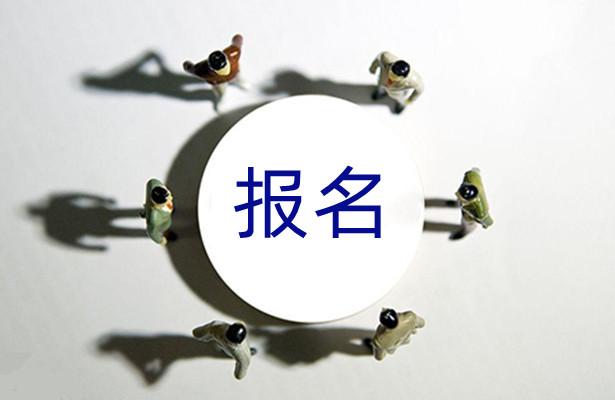


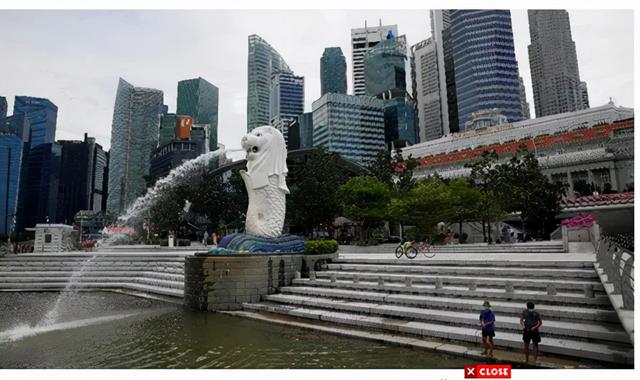
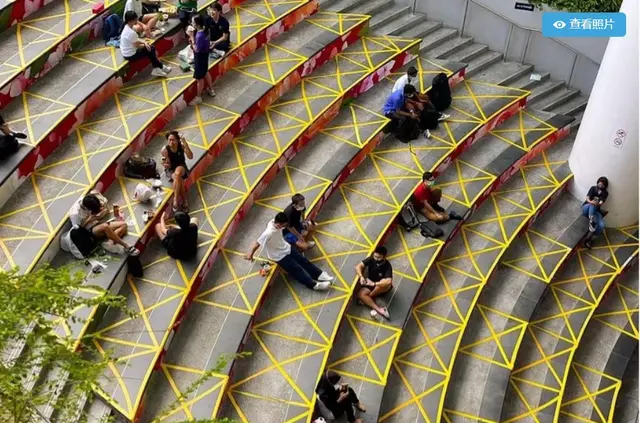
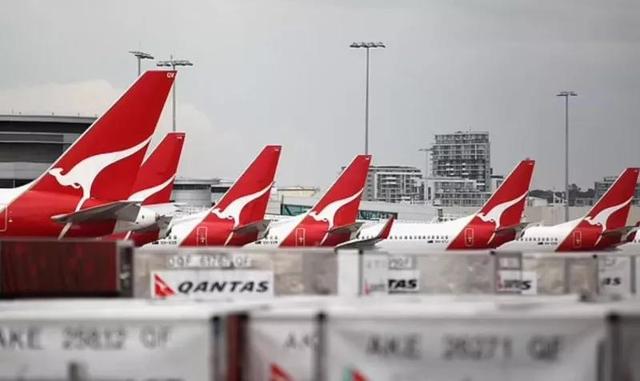

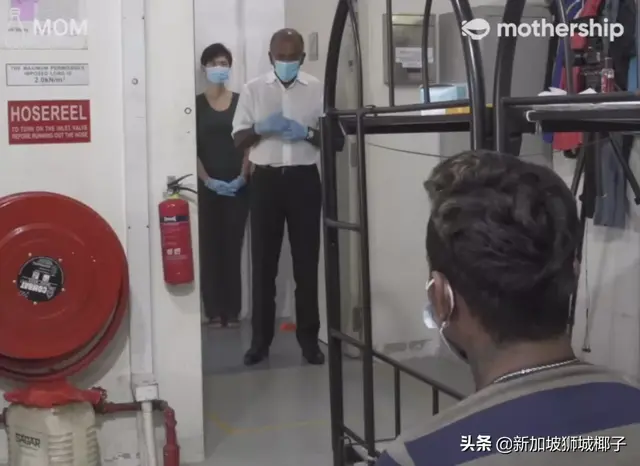
![[MD PHOTO] 韩国艺人金志洙仁川机场启程飞往新加坡](https://image1.xinjiapo.news/2019/02/91ba8c3750ff85327742dfcad91ad2394e439d02.jpeg?width=300&height=200)










评论